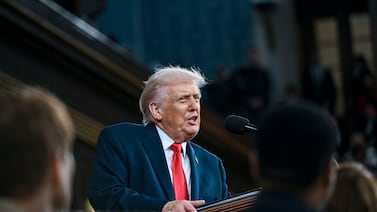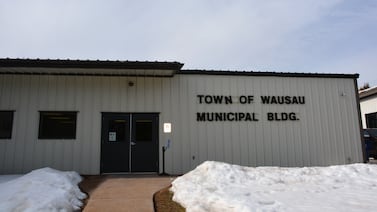Votebeat is a nonprofit news organization reporting on voting access and election administration across the U.S. Sign up for Votebeat Michigan’s free newsletter here.
For some communities across Michigan, Tuesday is Election Day.
In most of the townships and cities voting in May, the election features just a few issues and typically sees low turnout. Some communities will run an election for just a precinct or two; almost none will offer early voting or tabulate absentee ballots ahead of time.
So why do we have a May election in Michigan at all? There’s a state law involved, but mostly, it comes down to money.
A 2003 law consolidated elections
For many years, Michigan didn’t have set dates for elections.
“There were just elections all the time,” said Chris Thomas, who served for decades as state director of elections before retiring in 2017. “School millages, filling vacancies, it was just all over.”
In December 2003, Sen. Beverly Hammerstrom — a Republican from Monroe County and a former clerk herself — introduced a bill that consolidated elections to just four days in the year. Those dates might be familiar to Michigan voters now: They were the fourth Tuesday in February, and the first Tuesday after the first Monday in May, August, and November.
The bill moved quickly through the Legislature, and Gov. Jennifer Granholm signed it on Dec. 31. It took effect in 2005. Later changes established that certain offices and issues were to be voted on in certain years, Thomas said, and the February election was “eventually dumped” — though Michigan recently resumed holding its presidential primaries in February.
One of the biggest reasons for consolidation was cost, Thomas said. Having a set election schedule allows communities to be more strategic with their election budgets.
“The tradeoff, of course, is you get this very long ballot,” he said. “We’ve got everybody on that thing. Other than a few cities, really, it’s all the schools, the villages, the townships, a good number of cities, all your county offices and state offices, federal offices.”
Thomas noted that more people tend to show up for school elections when there are other races and issues on the same ballot.
And there’s another key benefit for school districts: Holding their elections for bond issues, millages, and sinking-fund proposals in May means they can better estimate how much money will be coming in when their fiscal year starts, typically July 1.
A May election ensures those things can appear on the summer property tax bill, said Michael Siegrist, Canton Township clerk. It all but guarantees that revenue for the upcoming year.
“Waiting until August puts them in a bad spot where they have to basically set their budgets for the next school year without knowing if they’re going to have their mill renewal or if the [intermediate school district] is going to have enough money to do support services for special education and things like that,” he said.
Should there be more consolidation?
Many clerks would prefer to see the August election eliminated altogether, moving every primary to May. Holding an election halfway between the May and November ones can distract election officials, Siegrist said, particularly during years with big statewide and federal races. August elections are also expensive and tend to have low turnout.
The Michigan Association of Municipal Clerks has been lobbying to combine the August and May election into a single election in either May or June, Siegrist said. Schools could still plan their budgets in time, and voters would be aware of their general election candidates earlier.
“The thought was if you merge them, you solve [the turnout] issue and satisfy all those interests,” Siegrist said.
While most Michigan cities hold their elections for city offices and other issues in November, a small number choose to elect their government in May. Wyandotte, a city of about 25,000 in downriver Wayne County, will elect its mayor, city council, assessor, clerk, and treasurer Tuesday.
That’s the result of an old state requirement that allowed cities to hold their elections without a primary if they held them in May, City Clerk Larry Stec — who is running unopposed Tuesday — told Votebeat.
It was an economical decision when it was made, Stec said, and it hasn’t caused Wyandotte any problems in the years since. It’s hard to tell if turnout for these races would be higher in November, he said, but residents still turn out in force for the local races.
“If nothing else, there could be a school election in May anyway,” he said. “Our job is to run elections. When we’re told we need to have one, we jump in and do our work.”
Hayley Harding is a reporter for Votebeat based in Michigan. Contact Hayley at hharding@votebeat.org.




